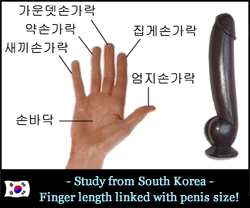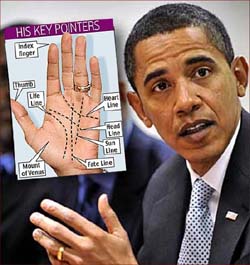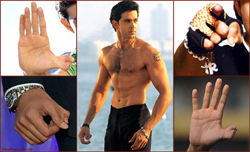BIONIC HANDS – part 3: Matthew Scott received the first hand transplantation (1999)
February 7, 2010
 BIONIC HANDS – 1999: Matthew Scott got the first hand transplant! On january 24, 1999 Matthew Scott became the first man who received successful hand transplant. In 2009 Matthew was able to celebrate the 10th anniversary of his hand transplant. It was performed in Kentucky by a team of doctors from Jewish Hospital, the University of Louisville and Kleinert Kutz & Associates. Mr. Scott lost his dominant left hand on December 23, 1985 in a blast from an M80 firecracker. He is now independent in his activities of daily living, although admits that he had to relearn everything necessary with a prosthetic device to achieve independence. Before the hand transplant, Mr. Scott was using an Otto Bach myoelectric prosthetic device. SUGGESTION FOR FURTHER READING: • BIONIC HANDS: 12 Milestones for the bionic hand! |
There have been about 40 hand transplants around the world!
April 21, 2009
|
In 1998 surgeons in France have carried out the world’s first hand transplant. In 1998 the transplanted hand came from an anonymous dead donor and was grafted onto the right arm of 45-year-old Clint Hallam, an Australian whose own hand was amputated in 1984 after an accident. In april 2009 the 6th hand transplant in the US (the 40th in the world) was performed on a Marine combat engineer who lost his hand during the war in Iraq: on Jan. 31, 2007, while holding a quarter-stick of TNT in his right hand when it accidentally exploded. The transplanted hand came from an 18-year-old West Virginia man who died of head trauma. HAND TRANSPLANTS BETTER THAN PROSTHETICS? The benefits of a hand transplant can very significant, but these advances are not very well described and rated yet. However, the rejection risk (the body may ‘reject’ the new hand) and ethical concerns still make it a touchy issue. Likely, what is needed is a controlled study comparing hand transplant recipients and prosthetics users of a hand prosthesis on various tasks, including quality-of-life measurements. • Dr. Joseph Imbriglia (hand surgeon) says:
• MD. John D. Lantos (bioethicist) says:
Sources: World’s first hand transplant & A functioning hand |

 “The prostheses become more of a burden than not, and the reason is that they have no sensation.”
“The prostheses become more of a burden than not, and the reason is that they have no sensation.”
 Finger length & penis size linked!
Finger length & penis size linked! The hands of Barack Obama
The hands of Barack Obama Megan Fox thumbs – TRIBUTE
Megan Fox thumbs – TRIBUTE Hrithik Roshan thumbs – TRIBUTE
Hrithik Roshan thumbs – TRIBUTE Hand Reading Research!
Hand Reading Research! MultiPerspective Palm Reading
MultiPerspective Palm Reading